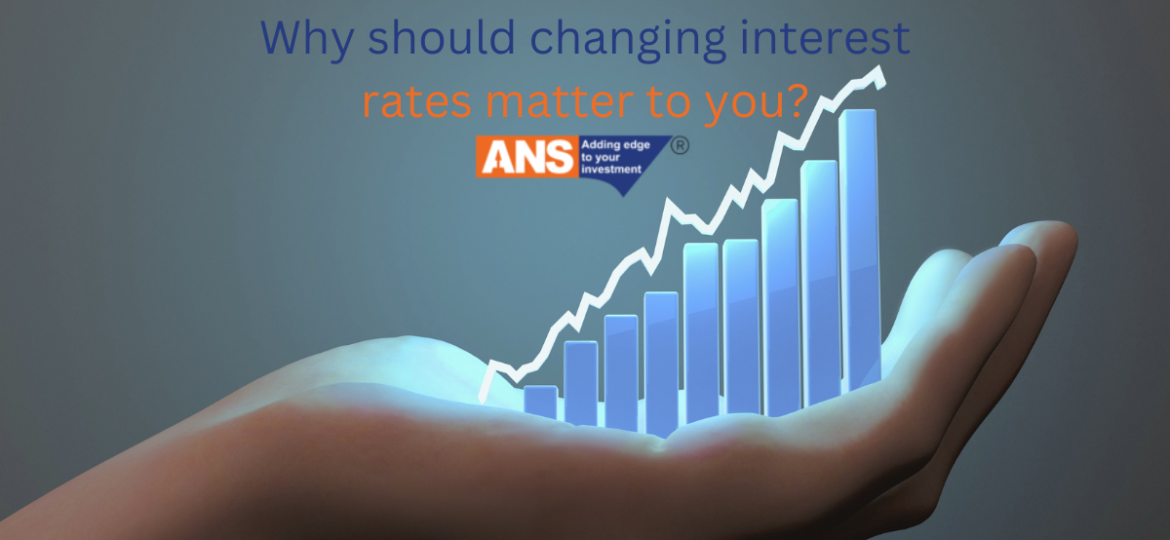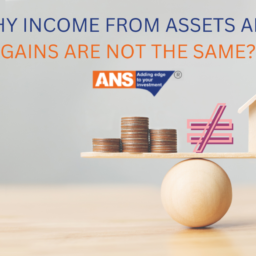
While discussing finances & investments, your major focus is grabbed by the interest rates. So, understanding what interest rate is and how it affects your business or personal finance can help you in making smart financial decisions.
Interest rate is a charge to the borrower for the utilization of an asset. The asset can include cash, goods, properties, or anything you own. In simpler words, look at it as a cost of borrowing money.
If interest rates are lower, it will influence people to apply for loans or purchase anything they want. If interest rates get higher, it will tend to constrain businesses from investing in a new expansion, purchasing equipment, and hiring more workers.
The changing interest rates’ impact can be thought of as both good and bad, depending upon which side we look at it from – a borrower or saver.
What would rising interest rates mean for me?
From a borrower’s point of view-
A lower interest rate seems to be more optimal for borrowers, considering it makes things like financing a home or any other loans more affordable.
Having said that, lower interest rates also lead you to opt for more debt than you can bear. This creates a problematic situation if interest rates increase suddenly while you are still paying off the debts.
So, to ensure that you get the best rates as a borrower, try to stay away from excessive debts and ensure that you have a good credit score.
From a saver’s point of view-
If you are at the saver’s end then higher interest rates will be a favorable condition for you. This notion is exceptionally crucial for individuals who are retired and/or risk-aversive since they are likely to invest in interest-bearing assets that have affirmed returns.
In such cases, lower interest rates would prevent them from having the necessary savings and income for retirement.
Impact of interest rates on assets-
-
Loans
Taking a new personal loan after an interest rate rise will usually be more costly than before as providers will charge higher rates of interest on loans.
Most unsecured personal loans charge a fixed interest rate, so your interest rate remains unaffected if you have an existing unsecured personal loan.
However, in the case of a secured loan, it is possible to have a variable rate, as the increase in the base rate will mean a rise in repayments over the term of the loan.
-
Savings
A base rate rise is usually good news for savers, as they can fully benefit from savings and will spend less.
This is because banks are unlikely to instantly increase interest rates on their savings accounts to match the base rate rise, thereby gaining a higher rate of return on deposits saved in a bank.
-
Stocks
In general, rising interest rates decline the performance value of stocks. If interest rates rise, that means people will expect a higher return on their savings, thereby removing the need to take on added risk by investing in stocks which further results in less demand for stocks.
When interest rates are rising, both companies and consumers will cut back on spending, causing earnings to fall and stock prices to drop.
On the other hand, when interest rates decline significantly, consumers and businesses will increase spending, causing stock prices to rise.
However, some sectors stand to benefit from interest rate hikes, among which the financial industry tends to benefit the most. Banks, brokerages, and insurance companies’ earnings often increase as interest rates move higher since they can charge more for lending.
-
Bonds
There is a contrary relationship between bond prices & interest rates which means as interest rates get higher, the bond prices go down in value and vice versa.
As interest rates move up, the cost of borrowing becomes more expensive meaning the demand and price for bonds will drop.
As interest rates drive down, it becomes easier to borrow money, and therefore companies will issue new bonds. This will cause the demand for bonds to increase, thereby increasing the bond price.
Impact of changing the interest rate on Inflation-
Increases in the price of everyday goods and services over time are referred to as inflation.
Inflation and interest rates are contrarily proportional to each other.
When interest rates decrease, people spend more on the cost of goods and services which means there is an increase in demand & supply of goods, since financing is cheaper.
Conversely, when interest rates increase meaning higher borrowing costs, people will spend less and demand will eventually decline, money-flows reverse, and inflation is somewhat tempered
Takeaway
Changing interest rates affect your personal and professional finances by influencing stocks, bonds, inflation, savings, loans, etc. but dwelling on these gets you nowhere.
Instead, contemplate minute but impactful moves to enhance your financial status and make better investment decisions.















